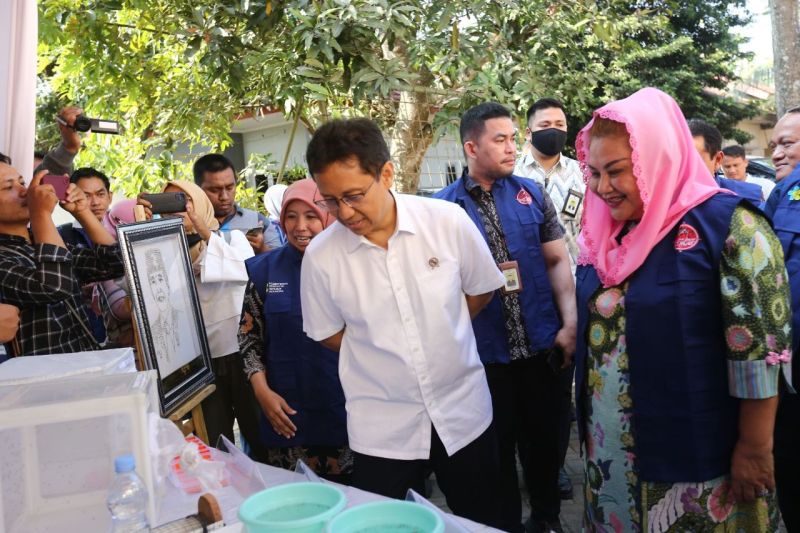Semarang (ANTARA) – Minister of Health Budi Gunadi Sadikin explained that the spread of mosquitoes containing Wolbachia bacteria is a new strategy to overcome the transmission of dengue hemorrhagic fever cases in Indonesia.
“DHF is an infectious disease with a high incidence in Indonesia,” said Minister of Health Budi Gunadi, at the launch of the implementation of Wolbachia Ing Kota (Wingko) Semarang, in Semarang, Tuesday.
The intended strategy is to spread Aedes Aegypti mosquitoes as a “vector” of DHF that has been injected with the Wolbachia bacteria so that they can then mate with other mosquitoes.
Wolbachia bacteria are known to be able to immobilize the dengue virus so that when the Aedes Aegypti mosquito bites a human, it will not spread the dengue virus to the human body. “This is our plan to use biotechnology for mosquitoes that have the potential to transmit DHF so that, roughly speaking, they are sterile, yes. So, they cannot transmit viruses that can cause DHF,” he said.
According to him, the research has been carried out and tested in Yogyakarta and was successful so that it will be replicated in five major cities, namely Semarang, West Jakarta, Bontang, Kupang and Bandung.
“These five cities will be financed by the Ministry of Health, plus one city will be financed by the Australian Government. Semarang is moving very fast, Mrs. Wali is supported by the provincial Health Office so that it will be the first launch in Semarang,” he said.
Meanwhile, Semarang Mayor Hevearita Gunaryanti Rahayu expressed her commitment to controlling DHF through the implementation of Wingko Semarang supported by the provincial Health Office and the Ministry of Health. “Thank God, Semarang has become the first ‘pilot project’ in Indonesia. It is hoped that with this ‘pilot project’, we hope that dengue cases will decrease,” said Ita, Hevearita’s nickname.
He admitted that the city of Semarang has a high prevalence of dengue cases, especially in Tembalang sub-district with densely populated contours, lots of trees and inundation, making it a pilot for the implementation of Wingko Semarang.
Also read: Early 2023 DHF cases in Kaltara found 374 cases
Also read: Central Lombok Health Office asks residents to intensively prevent DHF
“In the city of Semarang there are around 200 cases of dengue fever, and specifically for Tembalang it is the highest. There were 12 cases that died (due to dengue fever, ed.), one of them from Tembalang,” he said.
The implementation of Wingko Semarang has only been seen for at least six months because it takes time for mosquitoes to mate, introduce Wolbachia bacteria, and reproduce, so evaluation will be carried out continuously. “This is waiting for six months for the mosquitoes to mate first. The eggs become larvae, it only takes two weeks. Later we can do an evaluation, monitoring, for six months, then go to other areas,” he said.*
Reporter: Zuhdiar Laeis
Editor : I Komang Suparta
Copyright © ANTARA 2023
2023-05-30 13:19:31
#spread #mosquitoes #carrying #Wolbachia #bacteria #strategy #dealing #DHF #ANTARA #News #Mataram #West #Nusa #Tenggara


